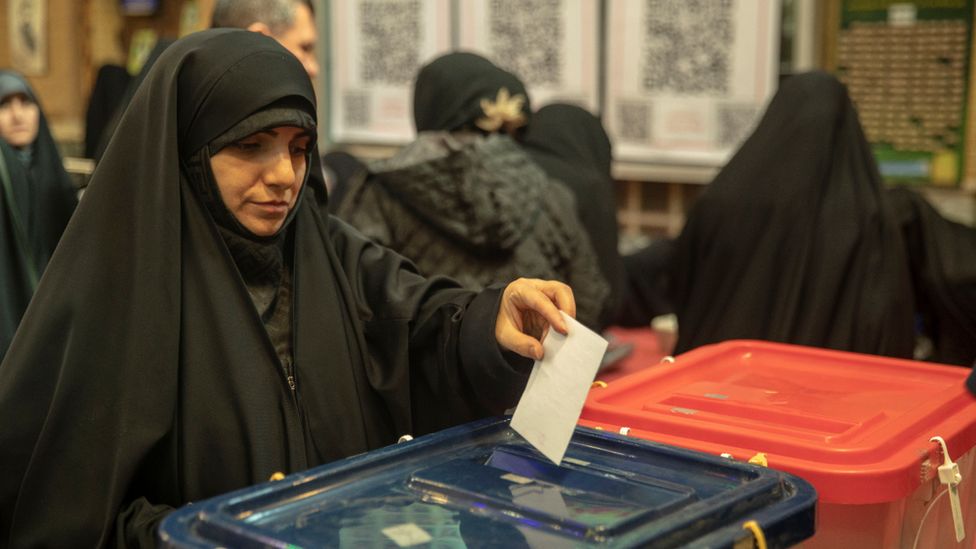Iran elections: Votes counted as reports suggest low turnout
- Published

Election officials in Iran are counting ballots after Friday's parliamentary election, as unofficial reports suggest the lowest turnout since the 1979 Islamic revolution.
The election was the first since the death in police custody of Mahsa Amini, a 22-year-old Iranian Kurd, triggered widespread protests in 2022 .
A number of reformists are boycotting the election, amid widespread hardship.
Early results show that conservatives have won Tehran's 30 seats.
Two separate polls took place on Friday: one to elect members of parliament, and another to elect the Assembly of Experts.
The assembly selects and oversees Iran's most powerful figure and commander-in-chief, the supreme leader.
Iran has been badly hit by international sanctions, an economic crisis and violent unrest.
More than 61.2 million Iranians were eligible to vote.
Despite Supreme leader Ayatollah Ali Khamenei's appeal for people to cast their votes, many Iranians were split on whether or not to take part.
The 2020 parliament was elected during the Covid-19 pandemic with a turnout of 42.57% - officially the lowest since the 1979 Islamic Revolution.
Early polling on Friday suggested the election's turnout could be at a new record low and is thought to be particularly low in the capital, Tehran.
A state-linked polling agency projected a 41% turnout for the parliamentary elections - which, if accurate, will be the lowest turnout in the past 12 such votes.
Caroline Davies, the first BBC reporter in Tehran since 2019, reporting on the election
Watch: The BBC's Carrie Davies visits a Tehran polling station as voting begins
With votes tallied manually, Iran's ballot takes time to count. Some of the results have been announced. According to Iran's state news agency, IRNA, most of the Assembly of Experts for major cities have been counted.
This assembly is a group of 88 Islamic clerics who have the responsibility to select the next supreme leader when the time comes - Ayatollah Ali Khamenei is 84 and the new assembly will sit for eight years.
Current Iranian President Ebrahim Raisi has been re-elected to this body, according to IRNA, after reportedly winning 82.5% of the votes in South Khorasan province.
Around 50 of the 290 parliamentary seats so far have been declared by some city councils. The final results are likely to be clear tomorrow.
No official turnout figure has been announced. Analysts suggested a low turnout would be a show of disenchantment with politics after many of the country's officials called for voters to head to the polls.
The Supreme Leader, who cast his vote first, did so saying "vote as soon as possible, the eyes of Iran's friends and ill wishers are on the results".
Related Topics
- Published21 September 2023
- Published28 February
- Published29 February
- Published1 March